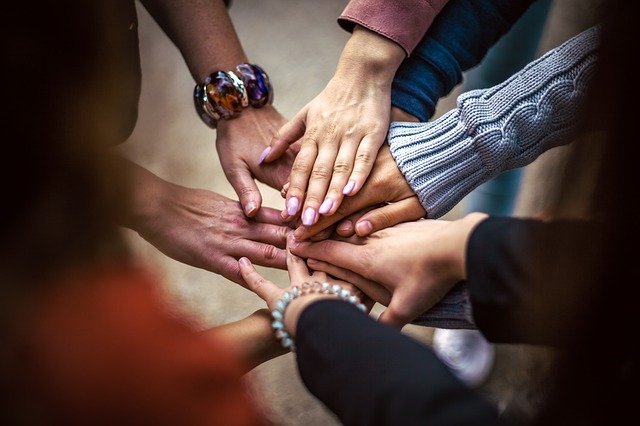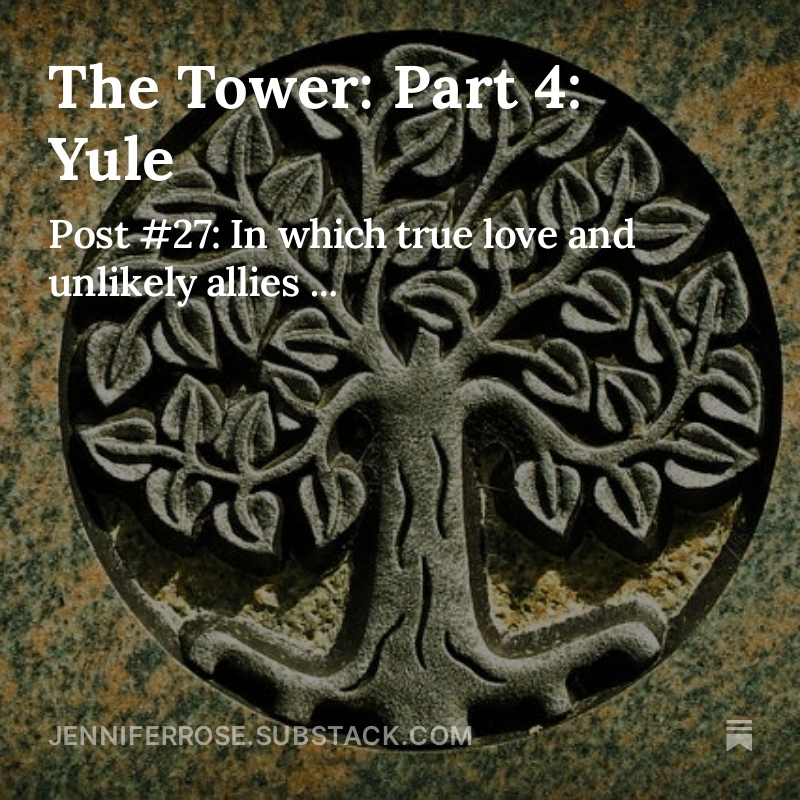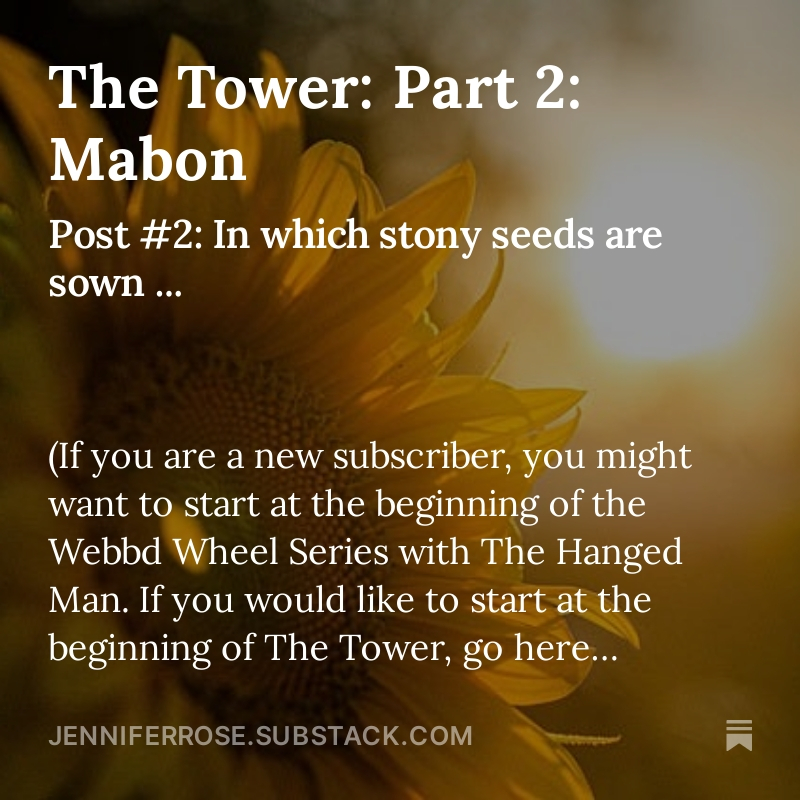by Jenny Rose | Aug 3, 2024 | Connection & Community, Emotional Intelligence
I received some second-hand feedback regarding my last post that’s had me thinking further about this idea of taking one’s own breath away.
We exist as individuals, and we also exist in relationship to others, and not only with our own species. In fact, as I reread the last statement, I realize it doesn’t quite reflect reality. We think of ourselves as discrete, separate individuals. “I.” “Me.” Yet it would be more accurate to say “we” and “us,” for we are each a world of microorganisms, internally and externally. Without all these bacteria, fungi, and other tiny organisms we couldn’t live. They facilitate everything from our digestion to our skin and mucous membrane health.

Photo by Helena Lopes on Unsplash
The point remains; however, we are each a part of ever-enlarging communities, from micro to macro. Oxford Online Dictionary defines ‘community’ as a group living in the same place or having specific characteristic(s) in common. A second definition is a “feeling of fellowship” with others because of common values, goals, and beliefs.
Community, in other words, is a fundamental human experience and shapes us in myriad ways. We are a social species; we need one another. I’ve been fighting with that reality all my life.
I believe much of our journey in life is about managing the continuum between narcissism (grandiose sense of self-importance, lack of empathy for others, need for excessive admiration, belief that one is deserving of special treatment) and echoism (a fear-driven compulsion to prioritize others’ needs).
That unwieldy balance necessarily takes place within the inescapable context of community.
It’s complicated.
We all know communities vary. Most of us acknowledge being part of several communities. Often our identities are inextricably bound with community membership, in the case of religion or family, for example. These bonds are very strong.
As I think about and participate in communities, I think about health. Am I healthy enough to function effectively and appropriately in my community? Is my community a healthy place for me?
Community is both a mirror and a crucible. Communities formed as social bubbles and echo chambers can be deeply comforting and validating. Everyone is like us. Everyone believes what we believe. We experience no discomfort or friction. We’re assured of our rightness, our clarity, our moral ground. We know the Truth. We never have to reconsider, find out we’re wrong, grow, learn new things, or change. We stand on solid ground and look into mirrors reflecting us exactly as we want to be seen.
Communities formed as crucibles, such as work, volunteer groups or neighborhood groups, are not so comfortable. In these communities we will experience conflict and friction. Everyone does not share our values and beliefs. Because everyone is not the same, we get glimpses of parts of ourselves we’d rather not see or have seen by others. We can’t hide our flaws and weaknesses, mistakes and missteps. We receive various kinds of feedback. We feel defensive, exposed, ashamed.

Photo by Cristian Newman on Unsplash
Crucibles are cradles for alchemy and change. They trigger our old traumas and shames without notice. They bring us face to face with ourselves and relentlessly demonstrate the effect of our behavior on others.
I observe that people who primarily interact in mirror communities are often black and white in their thinking. You’re for us or against us. You’re Us or you’re Them.
This kind of thinking strikes me as silly and unintelligent. The older I get, the more shades of grey I discover. Accepting shades of grey, however, is a lot more interpersonal and personal work than black or white labels. Shades of grey mean we have to think carefully about what we value and believe and why. We might have to defend our views. We might ask or be asked uncomfortable questions. Others might become annoyed, offended, or hurt by our position. People might try to make us small and silent, or fit us into a box so they can feel more comfortable with us.
We might let them.
I have often let them. And that’s about my own health. Healthy crucible communities empower rather than disempower; empowerment brings responsibility. A responsibility to be the healthiest and most whole person I can be. A responsibility to practice tolerance and respect towards myself and everyone around me. That means I’m responsible for my boundaries, my integrity, and my resilience.
The health of individuals in the community directly correlates to the health of the community itself; I don’t want to be the limiting factor in any community I’m a part of.
Striving for increased health and wholeness is a practice rather than a destination. Some days I feel like a shattered mess that can never be mended or healed. Other days I feel like a good-enough person, or maybe even a little better than that. I care about the people around me. My challenge is to care about myself equally, to hold my needs as important as those of others, to attend to my own well-being before becoming absorbed in caring for others. I don’t believe this makes me a narcissist, but it does move me away from echoism. People who view my behavior as narcissistic have perhaps benefited from those who, like me, have poured themselves out into others with no thought or responsibility for themselves.

Image by Bob Dmyt from Pixabay
I am fortunate to have a true healthy community; the first I’ve ever participated in with any degree of authenticity and vulnerability. My greatest fears have been realized, more than once. I am seen a great deal more clearly than I wish to be. I am cared about, a very uncomfortable state of affairs. When I make mistakes or my judgment is poor, everyone sees, everyone knows, and it feels disastrous. I am frequently uncomfortable because some of my belief systems and lifestyle choices are different from those around me.
The same is true for everyone in my community. We see each other, and we make room for each other with affection, humor, and occasional irritation that only underlines our caring.
I’m not embedded in a mirror, but in a crucible, and I wouldn’t choose differently. As uncomfortable (terrifying) and messy and even humiliating as it sometimes is, my interaction in my community is making me a better person in every possible way; I see myself in a community context in ways I never would alone or in a mirror community. My community expands my humility, forces me to become more resilient, pushes my boundaries, and teaches me that what really matters is friendship and respect, not lifestyle choices and differing belief systems.
Every day I take things I’ve learned in my community and turn them over, sometimes cry over them, figure out how to grow and change and be more effective. I do it for me … and for them. I do it because it’s a challenge, it’s fascinating, it’s growthful, and I don’t want to be part of a mirror community. I like diversity, as uncomfortable as it can be. Diversity makes me bigger and wiser.
The phrase “the public eye” is so amorphous as to be useless. I’m not concerned with what the stranger on the street thinks of me, if indeed they spare a thought for me at all. But I do care what my community thinks of me, because I know I’m valued for myself, imperfect and weird as I am. I trust them enough to allow them to help me grow. I don’t feel pressured to be like any one of them; rather the pressure is to be the best version of myself possible, which is exactly what I want for them.
The best versions of myself take my own breath away now and then, the root of my last post.
Healthy community is absolutely essential for all of us, in my view. So is the ability to self-reflect and accept ourselves with love and grace. I want to respond to those around me with tolerance and respect, and I learn to do that best as I practice tolerance and respect with myself. As I see myself more clearly and kindly, I see others more clearly and kindly. As I foster my own growth and change, I can better foster the growth and change of those around me.
Healthy communities depend on healthy individuals, or at least communities committed to health need individuals committed to their own health. That’s what works. Neither echoism nor narcissism build health or growth of any kind for anyone.
Questions:
- Name three communities you feel a part of. Is each one more of a mirror or a crucible?
- Which of your communities feels most healthy? Least healthy?
- What do you find hardest about being in community?
Leave a comment below!
To read my fiction, serially published free every week, go here: 
by Jenny Rose | Jan 20, 2024 | Emotional Intelligence, Feelings
(Due to a technical glitch, most of you were not notified when I last posted. You can follow this link to read the post if you missed it. I think the problem is fixed now!)
As so often happens, several threads came together to weave this post. The first was a suggestion from Seth Godin to follow our wandering mind, as that’s where our heart might be.
On first read, I smiled and thought “of course,” because following my imagination is one of my greatest pleasures.
As I considered it over a period of days, however, noting where my mind wanders, I discovered something.

Photo by John Salvino on Unsplash
I happily follow my wandering mind as long as I feel undisturbed about where it goes. The minute I start to get uncomfortable, however, I shackle it. Brutally. This might be with distraction, compulsive productivity, or starting to speed. A lot of people eat, overexercise, or get trapped in substance abuse. Let us count the ways!
I have rules about where my mind is allowed to go. I enforce my rules without mercy, in collaboration with draconian internal voices. My rigidity is not so much about my thoughts wandering as it is the feelings I have about my thoughts. This is emotional intelligence 101, and I’ve written about it before.
Thoughts and feelings are not the same thing.
In essence, then, I’m putting a lid on my feelings. Again. Still.
Sigh.
It doesn’t work. It never works, and I know this, but I do it anyway.
I do it for the same reason we all attempt to avoid painful feelings. They’re painful! Avoidance is easier than allowing ourselves to feel them, find healthy ways to express them, and let them go.
How many thoughts do we have in a day? I suspect most of us chew on the same preoccupations day after day, whether our thoughts engender feelings of rage, grief, fear, or shame, or a combination du jour. Uncomfortable territory. Also highly addictive territory. I’m chagrined to admit my own attraction to struggle. It’s so easy! Which is ridiculous, because it makes everything much, much harder than it needs to be, physically, emotionally, and generally.
Maybe what I mean is it’s so familiar!
As humans, we have an irresistible compulsion to notice, emphasize, and dwell upon the negative rather than the positive. That’s why so many people find relief in a gratitude practice, including me. Switching from a negative to positive focus requires mindfulness and mental effort, but the relief from anxiety and stress is immediate.
I should do it more often. Like ten times a day.
Understand, I’m not suggesting we avoid our feelings. I’m suggesting we take control of our thoughts, especially the negative kind. Feelings rise and fall inescapably. They’re biochemical messages from our physical bodies. We were made to have feelings. What we do with them, of course, is well within our control. Thoughts, however, are ours to steer.
Feelings, though arising naturally, are contagious and easily manipulated. That’s why advertising and social pressure work so well. Our feelings can be deliberately manufactured to serve those who would control our money, our votes, and our humanity.
On the other hand, this means we can to some degree manipulate our own feelings with our thoughts.
I came across an article by writer and speaker Rob Henderson, who I follow on Substack. He wrote a piece listing lessons he’s learned during a challenging life, beginning in the foster care system. One of the lessons is “you are what you do.” Not what you feel, but what you do.
I thought immediately of my writing community on Substack, where each of us struggles with what it means to be a writer. I don’t speak for anyone else, but I’ve called myself a writer ever since I began writing. Writers write. That’s what I do.
I like to keep things simple (even though I often don’t, which is a perfect example of what I say versus what I do!)

Photo by Alex Iby on Unsplash
We are what we do. I agree. We are not entirely defined by what we think and feel. I’ve known that ever since I went through emotional intelligence training. We’re also not defined by who we say we are, or who others say we are. We are not our highly polished and desperately maintained identity. Our true thoughts and feelings, the private stuff no one else can see or hear, steer our choices and actions, and those are what truly reveal our most authentic selves.
It follows if we want to change, we must do things differently. As many others have discovered long before me, true change comes from the inside out. If we manage our thoughts and feelings in healthy ways, our actions change. That’s why short-term strategies like diets often fail. A temporary diet does not address our broken relationship with food, a much harder proposition to tackle.
We seem to be on a giant rack, ever widening, between who we think we should be or must be and who we really are. The struggle and tension threaten to tear us apart, yet we cling to our rack, desperately holding ourselves together, too afraid to relax into who we really are and make peace with our true selves.
In a constant state of tension, we don’t let our minds wander. We can’t afford to. We don’t have access to the peace and quiet or even boredom a wandering mind requires. Our technology has erased the fertile ground of boredom, particularly for our children. We feed our hearts a diet of distraction, manufactured drama, busyness and productivity; a hunger for more, bigger, better, newer things, and expect it to be satisfied. We ignore or numb our feelings, or turn them into destruction of ourselves and others.
I often think of this Chinese proverb:
Tension is who you think you should be. Relaxation is who you are.
Toxic positivity is not an effective coping mechanism. Nor is a state of deep depression and withdrawal, as in addiction. I want to find a path between the two.
Perhaps my wandering mind knows the path and will point the way if I allow it to. Perhaps our minds know exactly where our hearts are but we’re too afraid to know.
Questions:
- When your mind wanders, where does it go?
- How do you feel about where your mind wanders?
- How do you think an inability to focus (distractibility) might in some cases be connected to a refusal to follow the guidance of mind and heart?
Leave a comment below!
To read my fiction, serially published free every week, go here: 
by Jenny Rose | Mar 26, 2022 | Emotional Intelligence, Feelings
Courtney Carver from Be More With Less suggests the feeling we call guilt may in fact be discomfort.
What an interesting distinction. I was immediately intrigued.
Guilt is defined as feeling responsible or regretful for a real or perceived offense.
A real or perceived offense.

Photo by Cristian Newman on Unsplash
If you’re someone like me, you feel almost everything you do and say is some kind of a breach of conduct, especially things like saying no, meeting your own needs, and setting boundaries. This feeling is based on past unhappy/critical/invalidating reactions of others to my actions. If I’ve Failed To Please, I feel guilty. I feel guilty even when I know I’ve done the right thing for myself.
So what if that feeling isn’t guilt at all? What if it’s discomfort?
Changing habits is uncomfortable, no doubt about that. Habits are effortless, especially mental and emotional habits. They feel like our friends. They’ve been with us a long time. We’re attached to them because they’re easy and familiar. Whether or not they’re effective or useful is not the point. How they affect others is of no interest.
They’re easy, and they’re ours.
The thing is, our habits don’t belong to us so much as we belong to them. We can stop them any time, we tell ourselves and everyone else. If we wanted to. But we don’t want to.
So there.
Breaking habits takes intention, focus, and determination. Support helps, but sometimes it’s unavailable.
So, do we feel guilty because we’re making different choices than our habits dictate, or do we feel uncomfortable because we’re making different choices? Making different choices affects those around us, and when things start changing, people get uncomfortable, especially if the change wasn’t their idea. Most people are sure to tell us when we “make” them uncomfortable.
Then the guilt starts.
Maybe discomfort, theirs and/or ours, is a good sign, a sign we’re truly doing the work of change. Maybe the guiltier/more uncomfortable we feel, the more successful we are.
Maybe we shelve the guilt and welcome the discomfort.
Sometimes we all do something we know is wrong and guilt helps us learn and make amends for our choices. Sometimes. Not every day, all day.
Being alive, taking up space, growing, learning, and reclaiming our power and health are not worthy of guilt. Uncomfortable work, yes. An offense, a breach of conduct, a crime, no.
When I feel that old familiar guilt come knocking, I’m going to look at it more closely. Maybe it’s not guilt at all. Maybe it’s just discomfort.

Photo by Gary Bendig on Unsplash
by Jenny Rose | Jan 15, 2022 | Connection & Community, Emotional Intelligence
Convenience: The state of being able to proceed with something with little effort or difficulty (online Oxford Dictionary).
It’s a frigid winter morning here in central Maine with a wind chill taking us into double-digit negative temperatures and a big winter storm approaching. I’m wrapped in a blanket, sitting in my attic aerie in the thin winter sunshine, listening to the wind and thinking about convenience.

Photo by Tom Barrett on Unsplash
The weather is inconvenient. I was hoping to load up the car for another trip to storage, but the wind chill is dangerous. Frostbite can occur in 10 minutes at these temperatures. The wind and cold have polished the ice and snow in our driveway to a slippery gloss, unforgiving as concrete. Nothing about the sound of the wind or the house creaking in the cold makes me want to leave my cozy blanket and chair and go out.
I think I’ll have another cup of tea instead.
I’ve never lived in a really old house before I came to Maine. The farmhouse we’re in now is 200 years old, and the house we’re in the process of trying to buy is more than 100 years old. I’ve learned, since I came here, to expect these old places to be less convenient in terms of closet space, ceiling height, finished basements, upstairs heat, and bathrooms than more modern homes.
Without considering it, I’ve always assigned a negative feeling to inconvenience. I read a few sentences from Seth Godin this week that made me think hard about the meaning and implications of convenience.
Looking at the definition above, I immediately notice how subjective it is. What may be entirely convenient for me can be ridiculously inconvenient for someone else, and vice versa. This is a challenge in my primary relationship. My partner cares a lot about convenience – his own. However, our ideas about what’s functional and workable are frequently quite different.
So here’s my first set of questions: where is the line between convenience and laziness? Is there a line? Should there be a line?
Godin opines that people will trade privacy and money for convenience, and I know from my own experience we sometimes behave as if we value convenience over relationships.
That seems wrong to me. Do we really care more about our own convenience – where things are kept, how we manage recycling and trash, how to load a dishwasher, how to position a roll of paper towels or toilet paper, how to iron a shirt – than our relationships?
Have I ever done that?
No, of course not!
Probably.
I have certainly received that message from others: I care more about having it my way than I do about you.
Ouch.
At the other end of the spectrum, I will say without hesitation there are certain “inconveniences” nobody should tolerate. Like being systematically abused or bullied, or ignoring a chronic issue that’s dangerous or a health concern. A car with a broken hatch or door that flies open while driving, for example, is more than an inconvenience.
Do we tolerate those kinds of things because it’s more inconvenient to deal with them than it is to live with them?
Speaking for myself, the answer is maybe. I will, and have, and do, tolerate constant small inconveniences because I value relationship more than my own comfort (not necessarily a healthy thing, especially when unreciprocated), and I find conflict and tension so unbearably inconvenient. I’d rather deal with my slow accumulation of resentment than stand up for what I find convenient in the context of a relationship and risk friction.
As I said, convenience is so subjective it’s hard to get on the same page in terms of discussing it. Convenience works in the shadows. We don’t talk or think about it directly. How many unconscious decisions a day do we make in an effort to make our busy, noisy lives more convenient, never counting the cost to ourselves or those around us?

Photo by Nabeel Syed on Unsplash
The cost of convenience. Not only monetary cost, but time, energy, social, environmental costs. Cars are indispensable for most of us. If we don’t have our own, we have access to some kind of mass transit. But we pay for our cars, and the planet suffers for them. Plastic is unbelievably convenient. It’s also choking the planet to death.
Convenience is a moving target. Having to walk through a big house to the one bathroom is not as convenient as an en suite bathroom, but it sure beats having to go out to the outhouse! When do we have enough convenience? When are we satisified with our privileges?
At what point have we taken convenience too far? How do we persuade ourselves and others to accept something more inconvenient but healthier and more sustainable for everyone, including the planet?
Undeniably, our search for more convenience has motivated countless amazing technological and design breakthroughs. Our desire for convenience can fuel our adaptability and resilience, our creativity, and underpins movements like minimalism.
But are we entitled to demand ever-increasing convenience from the world and those around us? Do we have a right to encounter no difficulty, have to make no effort?
Absolutely not. Because our convenience may be creating inconvenience for someone else, which they may or may not express. For me, this boils down to what I’ve learned about needs: My needs are as important but not more important than anyone else’s.
My convenience is as important but not more important than anyone else’s. None of us can escape others, not in this crowded world. And that means we’re all going to encounter difficulty and we’re all going to have make an effort, whether it’s convenient or not. Inevitably, some of us will make more effort than others, and it’s up to those hard-working people (emotional labor, anyone?) to refrain from enabling others in a quest for total convenience.
Perhaps inconvenience, like discomfort, is not negative at all. Maybe it shapes us in powerful, positive ways, helping us stay creative and flexible, reminding us to stay present with our true priorities and whether our actions reflect them.
Sometimes we’re going to have to change our plans to accommodate the weather.
Sometimes we’re going to have to walk through a couple of rooms or down the stairs to use our bathroom.
Sometimes we’re going to have to deal with the inconvenience of other people or pets.
We can choose convenience over all the rest. We can. But, as Godin reminds me, some things, and some people, are worth a little inconvenience. Or even a lot.

Photo by Aaron Burden on Unsplash
by Jenny Rose | Oct 18, 2021 | A Flourishing Woman, The Journey
It’s time. Harvesting Stones is now live, after six months of hard work. I hope you enjoy the new site as much as I do!

Why harvesting stones? We can’t plant pebbles and grow big stones. Why would we want to?
Stones are hard and heavy. Aside from gemstones or the pebble in our shoe, we don’t think about them much. Stone, after all, is everywhere. Healthy soil is the child of stone, plants and animals. Stone is literally the foundation of our world. It’s the raw material we live on, build and decorate with. Stone shapes the land. We break our backs and tools on stone.
We also, especially as children, marvel at the colors and shapes of stones. We pick them up, finger them, carry them in our pockets, take them home and set them on a shelf or table.
Stone is elemental. It contains a record of the planet’s history, and our history as a species. It contains the future, for every stone eventually wears away. It’s what remains when all else has perished, like bone, like seed. Stone endures.
Stone is resilient. It weathers. Water shapes it. Plants split it. Lichen breaks it down. Volcanic heat melts it. It can be chiseled and carved, and then time blunts and wears away the chiseling and carving. Given enough exposure and time, stone becomes sand and soil. It’s never lost. It’s always becoming.
Stone is uncompromising in its simplicity. It will bruise us, scrape our skin off, cling stubbornly to the field where it’s not wanted, make us ache with its weight. It doesn’t pretend to be something it’s not. It’s authentic.
Harvesting Stones is about presence. It’s about appreciating the stones we trip over, the stones we carry in our hearts and bellies and pockets. It’s about coming to terms with discomfort and looking past our narrow focus on monetary value and popular beauty. It’s about power.
I lately came across an exercise in The Enchanted Life by Sharon Blackie. She asks the reader: If you could be any place in the landscape, what would you be?

By Joshua Sortino on Unplash
I would be a cave. A hidden place, a haven. A cozy cave from which I could hear and see and taste the outside world. I’d be a cave with a spring falling into a stone basin, a cave with ledges and shelves, a cave with, perhaps, a bat colony in some part of it, or a hibernating bear, or a new animal mother and her young. A womb of stone.
Not surprisingly, caves show up everywhere in my reading and writing.
Creating Our Daily Crime was an extraordinary experience. I could never have imagined how many stones I would turn over, how much I would grow and learn, what I would discover, what I would let go. I was unprepared for how powerful it would be. Powerfully healing. Powerfully connecting.
Now I want to do more with that power. I wanted something more creative, more authentic, and more accessible for readers, browsers, and searchers. I wanted to create a digital space to share more poetry, more resources, more stories, and my books.
Welcome to Harvesting Stones.














